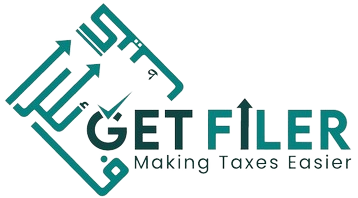Pakistan’s annual federal budget for the fiscal year 2023-2024, unveiled on June 9, 2023, encompasses crucial income tax and sales tax reforms that hold significant implications for individuals, businesses, and the nation’s overall economic landscape.
Income Tax:
- Progressive Tax Slabs: The budget introduces new tax slabs targeting high-income earners, with rates of 4%, 6%, 8%, and 10% for individuals earning above Rs. 300 million, Rs. 400 million, Rs. 500 million, and exceeding Rs. 500 million, respectively. This move enhances the progressivity of the tax system.
- Cash Withdrawal Tax: Non-filers are subject to a 0.6% tax on cash withdrawals surpassing Rs. 50,000 per day. This measure incentivizes tax filing and encourages participation in the formal economy.
- Bonus Share Tax: The budget proposes a 10% tax on bonus shares for filers and a higher rate of 20% for non-filers, aimed at generating additional revenue from capital gains arising from bonus share issuances.
- Withholding Tax on International Transactions: The withholding tax on international transactions made through debit/credit cards has been significantly increased, with rates rising to 5% for filers and 10% for non-filers. This measure aims to bolster revenue collection from cross-border transactions.
- SME Expansion: Manufacturers within the Small and Medium Enterprises (SME) category now enjoy a higher turnover limit of Rs. 800 million, up from Rs. 250 million, with the IT and IT-enabled services sector also included, fostering growth and innovation.
- Tax Credits for Property Construction: Tax credits are provided to individuals and builders involved in property construction during the tax years 2024-2026. For individual house constructors, the credit is capped at the lower of 10% of tax liability or Rs. 1 million, while builders can avail a credit of 10% of tax liability or up to Rs. 5 million for new construction projects.
- Exemption for Non-Resident Pakistanis: Non-resident Pakistanis purchasing immovable properties through Foreign Currency Value Accounts (FCVA) or NRP Rupee Value Accounts (NRVA) are exempt from advance tax, aiming to attract investment from overseas Pakistanis.
- Increased Limit for Foreign Remittances: The budget raises the limit for foreign remittances to USD 100,000 per year from Rs. 5 million, exempting remittances within this limit from inquiries about their nature and source, streamlining the process for overseas Pakistanis.
- Tax Relief for IT Exporters: Exporters of IT and IT-enabled services are no longer obligated to file sales tax returns to avail the reduced tax rate under the final tax regime, simplifying tax compliance and fostering growth in the IT sector.
These reforms aim to improve revenue collection, promote economic growth, encourage investment, and streamline tax compliance processes to support Pakistan’s financial development in the fiscal year 2023-2024.
Sales Tax Adjustments:
- Electricity Excluded from Federal Tax Regime: The budget removes the categorization of electricity as “Goods” or “Supply” for federal tax purposes, streamlining taxation procedures for the energy sector.
- Abolishment of Criteria for Tier-1 Retailers: The budget eliminates the criteria that determined the status of “Tier-1 Retailers,” who were previously required to integrate their Point-of-Sale systems with the Federal Board of Revenue (FBR). This change benefits retailers with shop areas of 1000 sq. feet or 200 sq. feet (for furniture shops) and those engaged in jewellery trade.
- Increased Sales Tax Rate for Textile and Leather: Tier-1 Retailers dealing in leather and textile products face an increased sales tax rate of 15% (previously 12%), aiming to enhance revenue collection from these sectors.
- Tax Waiver for IT-related Imports: Software exporters registered with the Pakistan Software Export Board can now import IT-related products without paying sales tax. This incentive supports the growth of the IT sector and encourages software exports.
- Lower Sales Tax Rate for Medicine: The sales tax rate on substances registered as drugs and medicine has been significantly reduced from 18% to 1%, making healthcare more affordable and accessible to the public.
- Withdrawal of Sales Tax Exemption for Bulk Edible Product Sales: The budget proposes to withdraw the exemption of sales tax on the bulk sale of branded edible products, including milk, yogurt, and red chilies, with the goal of generating additional revenue from these product sales.
For further information contact us to talk with our experts.


